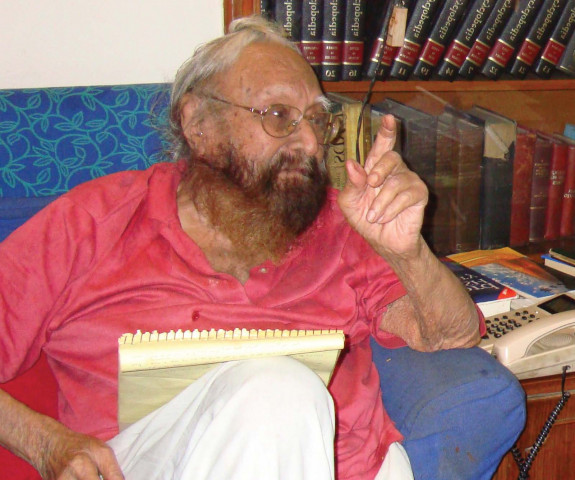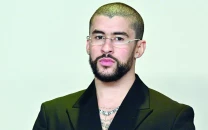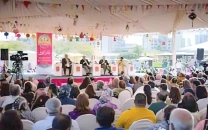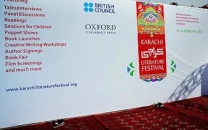Pakistan’s best friend

Sheela Reddy, the books editor of Outlook, who visits Khushwant Singh every evening, and a very kind lady who was introduced as a doctor who runs free mobile clinics for the poor slum dwellers of Delhi were also present.
“Would you like some Scotch?” he asked me, in the same Punjabi I grew up speaking. All I’d read about his passion for Scotch flashed through my mind. How he had fulfilled his dying mother’s wish who had demanded Scotch during her last moments. It was given to her by her obedient son; she drank her last sip to the life hereafter and passed away in peace. “Do you still drink Scotch?! How old are you now?” I replied in the same Khushabi accent. He said, “Yes I still drink and I am 96.” The kind doctor, who seemed to know the exact measuring for his glass, poured him his favourite Glenfiddich 12-year-old Single Malt. I was given something else and as I raised a glass to his good health with a wish that I should be with him on his 100th birthday he gave me a signed copy of his English translation of our national poet Iqbal’s Shikwa and Jawab-e-Shikwa. He said he had been to Pakistan many times that he could not recount them all adding “Whenever I planned a trip to Pakistan my mother would say don’t go there... these Muslims are very cruel… they will kill you and I would reply Mother, until now they have been killing me by feeding me very delicious meals and lots of Scotch! But in the same breath she would say please give my salaams to sister Asghari, do go to the house of so and so and give them my regards and don’t forget to take some gifts for them.”
I had taken a copy of his famous novel Delhi with me to ask him to sign it. I had read Delhi in the 90s and became an instant fan. Then I went on to read more of him including the most famous Train to Pakistan and the notoriously explicit The Company of Women. As I looked at him I thought of Train to Pakistan and tried to imagine the murderous frenzy that overtook Punjab following Partition as Sikhs and Hindus massacred Muslims and Muslims massacred Sikhs and Hindus and a huge transfer of population took place to and from the Indian and Pakistani parts of the Punjab as the land of the five rivers got bloodily divided. I was looking at him and thinking how it would have been for him to witness that genocide of Punjabis by Punjabis and how aptly he described it in Train to Pakistan. As if he had sensed my thoughts he said to me, “Do you know the Sikhs are now rebuilding mosques destroyed during the violence of Partition? In one village of the Indian Punjab the local Sikhs have rebuilt a demolished mosque, handed it over to the Muslims and now Sikhs stand guard outside the mosque as Muslims pray inside. Do get hold of this week’s Outlook and read the wonderful article by Chander Suta Dogra.” I got it the same evening.
It turned out that “around 200 mosques across Punjab have been repaired, rebuilt or built from scratch with the help of Sikhs and Hindus in the last 10 years... In the months after Partition, some 50,000 mosques across present day Punjab, Haryana and Himachel Pardesh were destroyed, burnt or converted into temples, gurdwaras, homes, even. Today, Muslims just comprise 1.5 per cent of Punjab’s population, mostly migrant labour from UP and Bihar... in addition to small pockets of Muslims, such as those belonging to Malerkotla, who did not go to Pakistan in 1947”. The article further informs the reader that the Malerkotla chapter of the Jamaat-e-Islami (Hind) has also been rebuilding mosques through the active help and co-operation of local Hindus and Sikh landlords.
I told Khushwant Singh about the large Gurdwara in Sargodha that is now called the Ambala Muslim High School. Sargodha was the district headquarters of the district Shahpur of which Khushab was a tehsil. In 1947 the population of Sargodha city was 36,000 with only 6,000 Muslims and a very large Sikh presence. All Hindus and Sikhs went to India as post-Partition violence erupted and the city was taken over by Muslim refugees from the east Punjab city of Ambala. The large Sikh Gurdwara located in the city centre was converted to a school for boys. There was an exceedingly deep and sad look on his face as he thought of the horrors he had witnessed.
I changed the topic and asked him about an incident narrated in his autobiography Truth, Love and a little Malice. He writes about how his grandfather Sardar Sujan Singh had rescued a Muslim holy man from a flood, kept him in Hadali for a few months and took very good care of him. When the holy man took his leave he said to Sardar Sujan Singh, “I’m handing over the keys of Punjab to your one son and the keys of Delhi to your other son.” Khushwant Singh says that little did his grandfather realise then that one of his young sons (Khushwant’s uncle) would one day become governor of the Punjab and the other (Khushwant’s father) would end up becoming Delhi’s most enterprising builder who won most contracts to build what is today’s New Delhi. This was something incredible written in his autobiography so I asked him for details. He said, “So goes the legend. This is how I heard it from my grandfather and I truly reported it in my autobiography.”
As our conversation switched to Pakistan he posed a straight question, “Has the number of burqas increased in society over the last 10 years?” My answer was yes. I told him about the Quaid-e-Azam University Islamabad where the number of burqa wearing female students has increased manifold compared to 1995-97 when I was a student there. Khushwant Singh replied, “The burqa is my yardstick to measure which way a Muslim society is heading.”
Apart from being a prominent editor of a number of newspapers, magazines and journals, Khushwant Singh also served as member of the upper House of Indian Parliament. The Indian government awarded him a high civilian award, the Padma Bhushan in 1974. He returned it in 1984 in protest against the siege of the Golden Temple by the Indian Army. But in 2007, the Indian government awarded the even higher civilian award, the Padma Vibhushan.
Being an ardent secularist Khushwant Singh has been very critical of the rise of Hindu extremist groups in India and also of the BJP. He was quite relieved that “the political fortunes of the BJP have declined because people have become fed up with its anti-Muslim agenda. BJP is going downhill nationally but Gujrat is an exception. There rules that criminal Narindra Modi.”
Not only did he lash out against the Gujrat chief minister, he also spoke against the senior BJP leader LK Advani for his role in the demolition of the Babri mosque. I thought of his booklet The End of India which he wrote after the Modi government sponsored the 2002 massacres of Muslims in the state of Gujrat. It is a damning indictment of the forces of Hindu extremism and what a threat they pose to Indian society.
He also said “probably there is no greater friend of Pakistan in India than myself.” It is his cherished wish to see India and Pakistan co-existing as peaceful neighbours where people from both countries can travel freely without visa restrictions.
It was almost eight in the evening. The two ladies had already left and it was time for Khushwant sahib to retire to his bedroom as he wakes up at 4 in the morning. Knowing full well that it was the rule of the darbar of Khushwant Singh that when it is the time for him to retire then all guests must leave no matter who they are. I begged my leave. As I walked out of the beautiful, vast compound of apartments named after Khushwant Singh’s grandfather I prayed for his long life and health and wished that I am able to visit him on his 100th birthday.
Published in The Express Tribune, August 1st, 2010.



















COMMENTS
Comments are moderated and generally will be posted if they are on-topic and not abusive.
For more information, please see our Comments FAQ